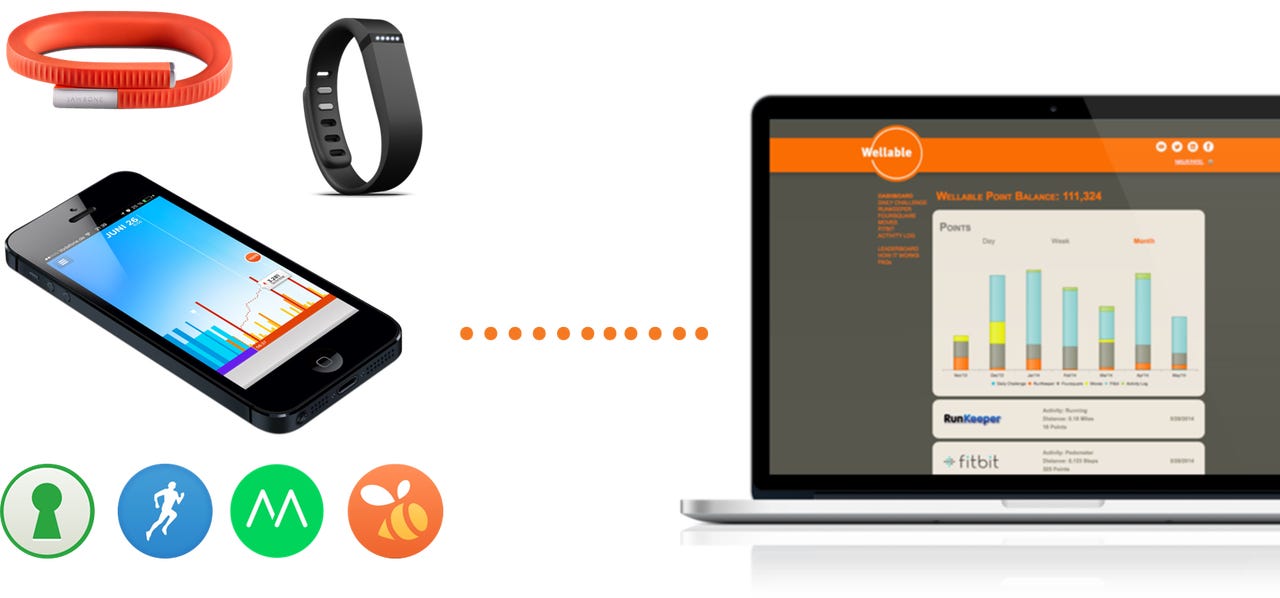Startup tackles SMB corporate wellness initiatives


Investors are pouring millions into digital healthcare innovation, including telemedicine and patient records management. One fast-growing niche is corporate incentive platforms that encourage employees to take a more active interest in individual wellness.
A high-profile example is Jiff, which just raised $18 million in a Series B led by Venrock, bringing its total so far to $25.8 million. The company is creating mobile apps that aggregate "hundreds" of existing digital health resources with the aim of helping big businesses get more employees engaged in managing their health and, by extension, their healthcare expenses. It's riding the coattails of interest in the Apple Watch and Healthkit technologies.
"Self-insured employers spend 30 percent of all healthcare dollars in the United States, around $670 billion," said Derek Newell, CEO of the Palo Alto, Calif.-based startup. "And until Jiff, there was no way for employers to aggregate and offer these digital tools to employees, collect the data they create, and use that data to build personalized health incentives and challenge programs."
Jiff's partnership with benefits consulting company Towers Watson suggests its initial focus is on Fortune 500 companies, insurance provider and healthcare networks, as is the case with many of these startups.
One company bucking that trend is two-year-old Wellable in Boston, which wants to help small and midsize businesses (SMBs) encourage healthy employee behavior. Its platform aggregates data generated by wearable devices such as Fitbit and Jawbone UP or mobile fitness apps such as RunKeeper, Moves or FatSecret.
Target customers: SMBs that want to encourage healthy behavior for any number of reasons, usually boosting productivity or attempting to reduce medical expenses.
"These apps are free," said Nick Patel, co-founder and president of Wellable. "Rather than paying someone who has an app, we help them build a bridge to what's free and highly engaging. Employees can just download the apps. That helps with our user experience."
Certainly, usage is growing: data out this week from Localytics shows the amount of time spent with mobile health and fitness apps grew by 51 percent from August 2013 to August 2014. That's more than for any other category, except for music.
Using Wellable, SMB managers can launch initiatives, such as a "quit smoking" campaign, and reward people for progress. (Other programs such as chronic disease management will be added in the future.) Its platform keeps tabs on progress, based on the rules dictated by the company. Employees can use their points to earn perks, such as a gift card, without requiring an organization with limited resources to administer the results.
One early partner is the Clinton Health Matters Initiative, formed to raise awareness of preventable diseases that can be managed through better behavior. The initial focus is on reaching communities in Arkansas, California, Florida and Texas. Plus, Wellable has about a dozen early customers including Veson Nautical, which uses the platform to run its Olympics program. Under the program, employees can use Fitbit devices and mobile apps like RunKeeper app to participate. Everything is tracked automatically (teams previously had to rely on spreadsheets).
Featured
"Veson Nautical is always looking for fun and innovative ways to promote health and fitness for our rapidly growing team across the globe," said human resources executive Barry Hartunian in a statement. "As a Boston-based software company, we are delighted, at the same time, to be supporting the local start-up community."
Challenged about whether skittishness over privacy will keep people from allowing their employers access to this sort of information, Wellable co-founder and Chief Growth Officer Cole Boskey said his company has taken steps to make sure that data can't be associated with individuals and that participation is completely voluntary.
While Boskey and Patel declined to provide pricing, subscriptions are charged on a per-employee, per month basis.